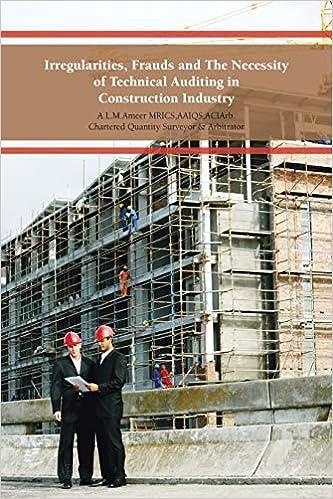Question
Valves (24% of company revenues) were created from four brass components. Scott had designed machines that held each component in jigs while it was machined
Valves (24% of company revenues) were created from four brass components. Scott had designed machines that held each component in jigs while it was machined automatically. Each machinist could operate two machines and assemble the valves as machining was taking place. The expense of precise machining made the cost of Destin's valves too high to compete in the nonspecialized valve market, so all monthly production of valves took place in a single production run, which was immediately shipped to its single customer upon completion. Although Scott felt several competitors could match Destin's quality in valves, none had tried to gain market share by cutting price, and gross margins had been maintained at a standard 35%.
Pumps (55% of revenues) were created by a manufacturing process that was practically the same as that for valves. Five components required machining and assembly. The pumps were then shipped to each of seven industrial product distributors on a monthly basis. To supply the distributors, whose orders were fairly stable as long as Destin would meet competitive prices, the company scheduled five production runs each month. Pump prices to distributors had been under considerable pressure. The pump market was large, and specifications were less precise than those for valves. Recently, it seemed as if each month brought new reports of reduced prices for pumps. Steve Abbott felt Destin had no choice but to match the lower prices or give up its place as a supplier of pumps. As a result, gross margins on pumps sales in the latest month had fallen to 22%, well below the company's planned gross margin of 35%. Guidry and Alford could not see how the competitors could be making profits at current prices unless pumps were being subsidized by other products.
Flow controllers (21% of revenues) were used to control the rate and direction of flow of liquids. As with pumps, the manufacturing operations required for flow controllers were similar to those for valves. More components were needed for each finished unit, and more labor was required. In recent months, Destin had manufactured 4,000 flow controllers in 10 production runs, and the finished flow controllers had been distributed in 22 shipments to distributors and other customers. Steve Abbott was trying to understand the market for flow controllers better because it seemed to him that Destin had almost no competition in the flow controller market. He had recently raised flow controller prices by 122% with no apparent effect on demand.
Below is the Monthly Overhead Cost Activity Analysis created by the company:

Below is also additional information created by the company:

1. Use the Overhead Cost Activity Analysis in Exhibit 5 and other data on manufacturing costs to estimate product costs for valves, pumps, and flow controllers.
Exhibit 5 Monthly Overhead Cost Activity Analysis Valves Pumps Flow Controllers Receiving and Materials Handling 4 transactions (396) 4 transactions (3%) 25 transactions (19%) 25 transactions (19%) 100 transactions (78%) 100 transactions (78%) Receive each component once per run Handle each component once per run Packing and Shipping 1 transaction (396) 7 transactions (23%) 22 transactions (73%) One packing order per shipment Engineering Estimated engineering work-order percentage (subjective) Maintenance: 20% 30% 50% 3,750 hours (35%) 6,250 hours (58%) 800 hours (7%) Machine-hour basisStep by Step Solution
There are 3 Steps involved in it
Step: 1

Get Instant Access to Expert-Tailored Solutions
See step-by-step solutions with expert insights and AI powered tools for academic success
Step: 2

Step: 3

Ace Your Homework with AI
Get the answers you need in no time with our AI-driven, step-by-step assistance
Get Started


